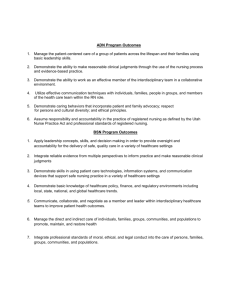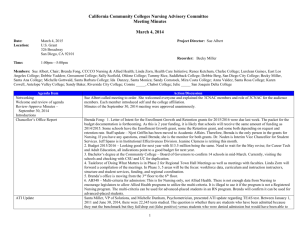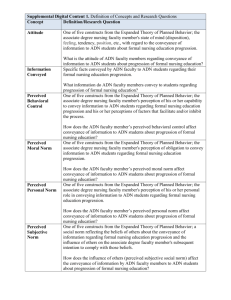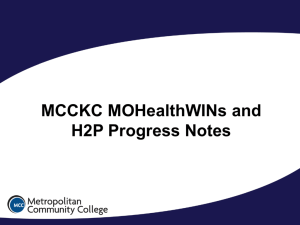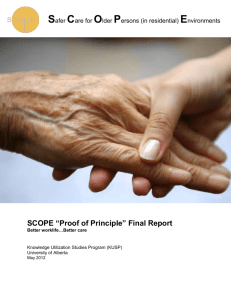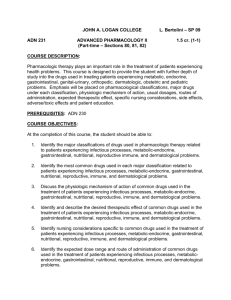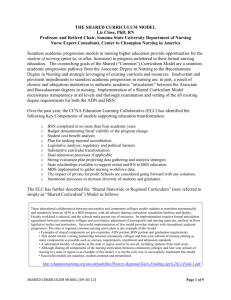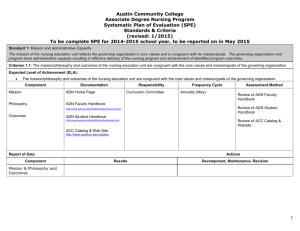Table 1: Outcomes Reported Met in One State`s ADN Programs
advertisement
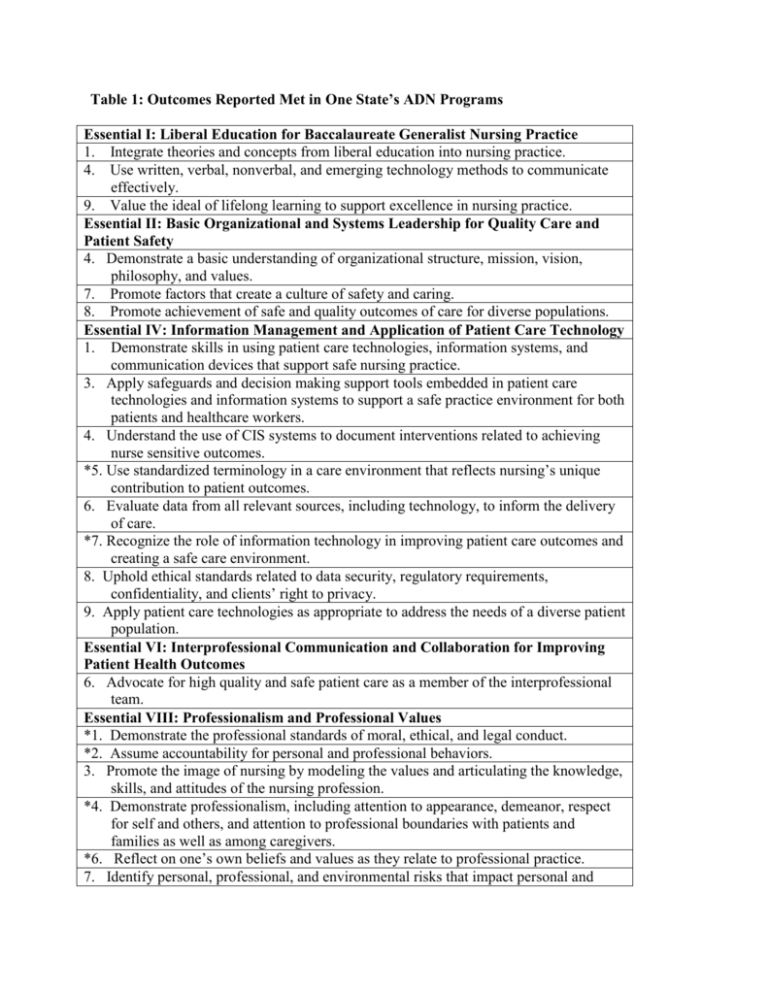
Table 1: Outcomes Reported Met in One State’s ADN Programs Essential I: Liberal Education for Baccalaureate Generalist Nursing Practice 1. Integrate theories and concepts from liberal education into nursing practice. 4. Use written, verbal, nonverbal, and emerging technology methods to communicate effectively. 9. Value the ideal of lifelong learning to support excellence in nursing practice. Essential II: Basic Organizational and Systems Leadership for Quality Care and Patient Safety 4. Demonstrate a basic understanding of organizational structure, mission, vision, philosophy, and values. 7. Promote factors that create a culture of safety and caring. 8. Promote achievement of safe and quality outcomes of care for diverse populations. Essential IV: Information Management and Application of Patient Care Technology 1. Demonstrate skills in using patient care technologies, information systems, and communication devices that support safe nursing practice. 3. Apply safeguards and decision making support tools embedded in patient care technologies and information systems to support a safe practice environment for both patients and healthcare workers. 4. Understand the use of CIS systems to document interventions related to achieving nurse sensitive outcomes. *5. Use standardized terminology in a care environment that reflects nursing’s unique contribution to patient outcomes. 6. Evaluate data from all relevant sources, including technology, to inform the delivery of care. *7. Recognize the role of information technology in improving patient care outcomes and creating a safe care environment. 8. Uphold ethical standards related to data security, regulatory requirements, confidentiality, and clients’ right to privacy. 9. Apply patient care technologies as appropriate to address the needs of a diverse patient population. Essential VI: Interprofessional Communication and Collaboration for Improving Patient Health Outcomes 6. Advocate for high quality and safe patient care as a member of the interprofessional team. Essential VIII: Professionalism and Professional Values *1. Demonstrate the professional standards of moral, ethical, and legal conduct. *2. Assume accountability for personal and professional behaviors. 3. Promote the image of nursing by modeling the values and articulating the knowledge, skills, and attitudes of the nursing profession. *4. Demonstrate professionalism, including attention to appearance, demeanor, respect for self and others, and attention to professional boundaries with patients and families as well as among caregivers. *6. Reflect on one’s own beliefs and values as they relate to professional practice. 7. Identify personal, professional, and environmental risks that impact personal and 2 professional choices and behaviors. 8. Communicate to the healthcare team one’s personal bias on difficult healthcare decisions that impact one’s ability to provide care. 9. Recognize the impact of attitudes, values, and expectations on the care of the very young, frail older adults, and other vulnerable populations. 10. Protect patient privacy and confidentiality of patient records and other privileged communications. 12. Act to prevent unsafe, illegal, or unethical care practices. 13. Articulate the value of pursuing practice excellence, lifelong learning, and professional engagement to foster professional growth and development. 14. Recognize the relationship between personal health, self-renewal, and the ability to deliver sustained quality care. Essential IX: Baccalaureate Generalist Nursing Practice 1. Conduct comprehensive and focused physical, behavioral, psychological, spiritual, socioeconomic, and environmental assessments of health and illness parameters in patients, using developmentally and culturally appropriate approaches. *5. Deliver compassionate, patient-centered, evidence-based care that respects patient and family preferences. *6. Implement patient and family care around resolution of end-of-life and palliative care issues, such as symptom management, support of rituals, and respect for patient and family preferences. 7. Provide appropriate patient teaching that reflects developmental stage, age, culture, spirituality, patient preferences, and health literacy considerations to foster patient engagement in their care. *8. Implement evidence-based nursing interventions as appropriate for managing the acute and chronic care of patients and promoting health across the lifespan. *9. Monitor client outcomes to evaluate the effectiveness of psychobiological interventions. 10. Facilitate patient-centered transitions of care, including discharge planning and ensuring the caregiver’s knowledge of care requirements to promote safe care. *11. Provide nursing care based on evidence that contributes to safe and high quality patient outcomes within healthcare microsystems. *12. Create a safe care environment that results in high quality patient outcomes. *13. Revise the plan of care based on an ongoing evaluation of patient outcomes. *16. Demonstrate the application of psychomotor skills for the efficient, safe, and compassionate delivery of patient care. 17. Develop a beginning understanding of complementary and alternative modalities and their role in health care. *18. Develop an awareness of patients as well as healthcare professionals’ spiritual beliefs and values and how those beliefs and values impact health care. *21. Engage in caring and healing techniques that promote a therapeutic nurse-patient relationship. * Outcomes met by 100% of ADN programs. ADN, associate degree nursing.
